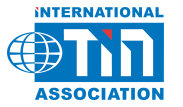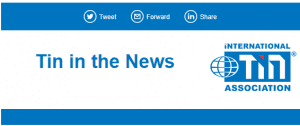Long-running discussions on plans to limit tin exports were concluded on Monday with an agreement by most Indonesian producers to restrict their combined sales to 4,500 tonnes per month from April.
Bloomberg reported that the agreement was reached at meeting between smelters and officials from the Bangka Belitung provincial administration, according to Budiman Ginting, head of the provincial tin-working group. PT Timah will limit monthly exports to 2,500 tonnes per month and the balance will be divided among 21 private smelters, he said in an interview. Timah agrees with the pact, Marketing Director Dadang Mulyadi said at the meeting. The 19 smelter members of the Indonesian Association of Tin Exporters (AETI) had also agreed to limit exports to 2,000 tonnes per month, the group’s President Jabin Sufianto told Reuters in another report.
The recent plunge in tin prices had prompted Rustam Effendi, governor of the main producing region of Bangka Belitung, to propose an export moratorium to boost prices to $20,000. “We will let the ‘market mechanism’ take its course with this agreement,” Ginting told Bloomberg, when asked when the price target may be achieved. “We will review this every month,” he said.
Indonesian exports have averaged some 6,250 tpm since September 2013, when new legislation forcing refined tin sales through the Indonesia Commodity and Derivatives Exchange (ICDX) first came into force. In the previously five years monthly exports had averaged a little over 8,000 tpm. Preliminary data shows exports in January and February this year at 6,770 tonnes and 5,986 tonnes respectively, with latest ICDX sales figures pointing to a similar level in March.
ITRI View: The agreement pulls together separate initiatives to limit sales announced by PT Timah and AETI in February. It appears that the entire planned cutback will be made by the private smelters involved, as the Timah monthly sales are in line with a previously announced 2015 sales target of 30,000 tonnes, which is up 11% on actual sales of 26,907 tonnes achieved in 2014. It is not clear how private smelters who are not members of AETI will react. Nevertheless, assuming the deal stays in place for several months, it should result in tighter supply and provide some support for tin prices.


